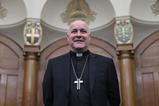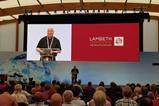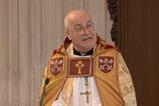Clergy became essential key workers during the pandemic, tirelessly serving their communities. Now it’s over, let’s not forget that they may need supporting too, says Most Rev Stephen Cottrell, Archbishop of York
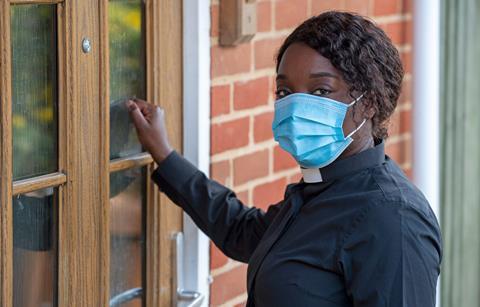
The pandemic has taught us many hard lessons but, for me, there has been one significant light amid the darkness.
The past two years have, I think, helped many of us to think about service in a more deliberate way, and to appreciate the rich tapestry of service which runs through our communal and national life.
From the way we applauded NHS workers in the streets during the first lockdown, to the honours rightly awarded to community heroes of the pandemic, many of us have appreciated afresh the incredible value which our neighbours bring to society. For me, that has included recognising that service not only covers those remarkable women and men working directly in our public services, but the many others who also dedicate their lives to serving in one way or another, like those who drive delivery vans or stack supermarket shelves.
Creating community
Who would have thought that clergy would also be identified as key workers! But during the pandemic, it wasn’t just the Church who recognised the hugely significant role that clergy play in creating community wellbeing and cohesion. Forced to close their buildings, church leaders across the UK found new and imaginative ways to take worship online – and engaged with new people in the process. Many of those buildings were reinvented, too, serving as food banks and vaccination centres.
Most aren’t looking for special praise, but that doesn’t mean we shouldn’t thank them anyway
The importance of bread-and-butter pastoral care was rediscovered (though for many, it was never lost in the first place!) Clergy held the hands of the sick, the dying, the bereaved and the lonely - finding creative and compassionate ways of doing that when physical touch wasn’t possible. And, of course, they prayed – earnestly, consistently and faithfully - for a way through the darkness, for people’s wellbeing, for their communities and their country. Such service is a privilege and a blessing, but that doesn’t mean it isn’t a challenge too.
Extraordinary challenges
For nearly 400 years, a special - but not necessarily well known - charity has had the backs of those people I am proud to call my colleagues. As a young priest, struggling to raise a family on a single stipend, the Clergy Support Trust helped to pay for family holidays, school uniforms and music lessons that would have been otherwise unaffordable for us.
Today, as Archbishop of York, I’m privileged to be its Honorary President. Founded in 1655, the Trust exists to serve those who serve others – and it has never been more needed. In 2021, it helped over 5,000 people, primarily through financial grants for household expenses and wellbeing totalling over £3.1m, but also offering free counselling, health assessments and a range of other support.
The pandemic has taught us to appreciate the rich tapestry of service which runs through our national life
It is, of course, primarily the Church’s duty to care for its people. At this time, with the cost of living rising and many families facing extraordinary challenges, I am pleased that in York, as in most other dioceses, we are able to provide clergy with additional financial support for energy bills. But the Trust is there to help as well, especially for those who only have the stipend as their household income, and for other particular and acute needs.
A celebration of service
Each May, the Trust holds a festival at St Paul’s Cathedral in London – a service to celebrate service, if you will. It is a magnificent occasion, but its glory isn’t in the procession of robed dignitaries or the three amazing choirs that will be singing, though these are unique and wonderful elements of a truly unique and wonderful event. For me, the festival’s true glory is the people at the heart of it: the clergy, and their families, who spend their lives having everybody else’s back.
Most clergy aren’t looking for special praise – in fact, many shy away from it! So, of course, do many doctors, nurses, paramedics, orderlies, police officers, firefighters, civil servants, postal workers, environmental cleaners, park attendants, teachers, social workers, fosterers, care home staff… but this doesn’t mean that we shouldn’t pause from time to time and thank them anyway. Nor does the end of restrictions mean that we should forget their extraordinary and exemplary service. As we remember Jesus, the Son of God who gave his life in service of others, we should also recall the sacrifices made by so many for yours and my wellbeing – and thank God for them all.
The Clergy Support Trust’s annual Festival Service takes place at St Paul’s Cathedral on Tuesday 24 May. Tickets are free, but should be booked in advance via clergysupport.org.uk/festival.
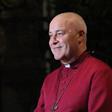
The Queen lived and died in Christian hope. We pray she will rise again in glory
'Bishops should always have the name of Jesus on their lips' Archbishop of York's message to church leaders
‘I’m not ashamed to say I lean on Jesus Christ. And neither is Her Majesty.’ Read Archbishop of York’s sermon in full












